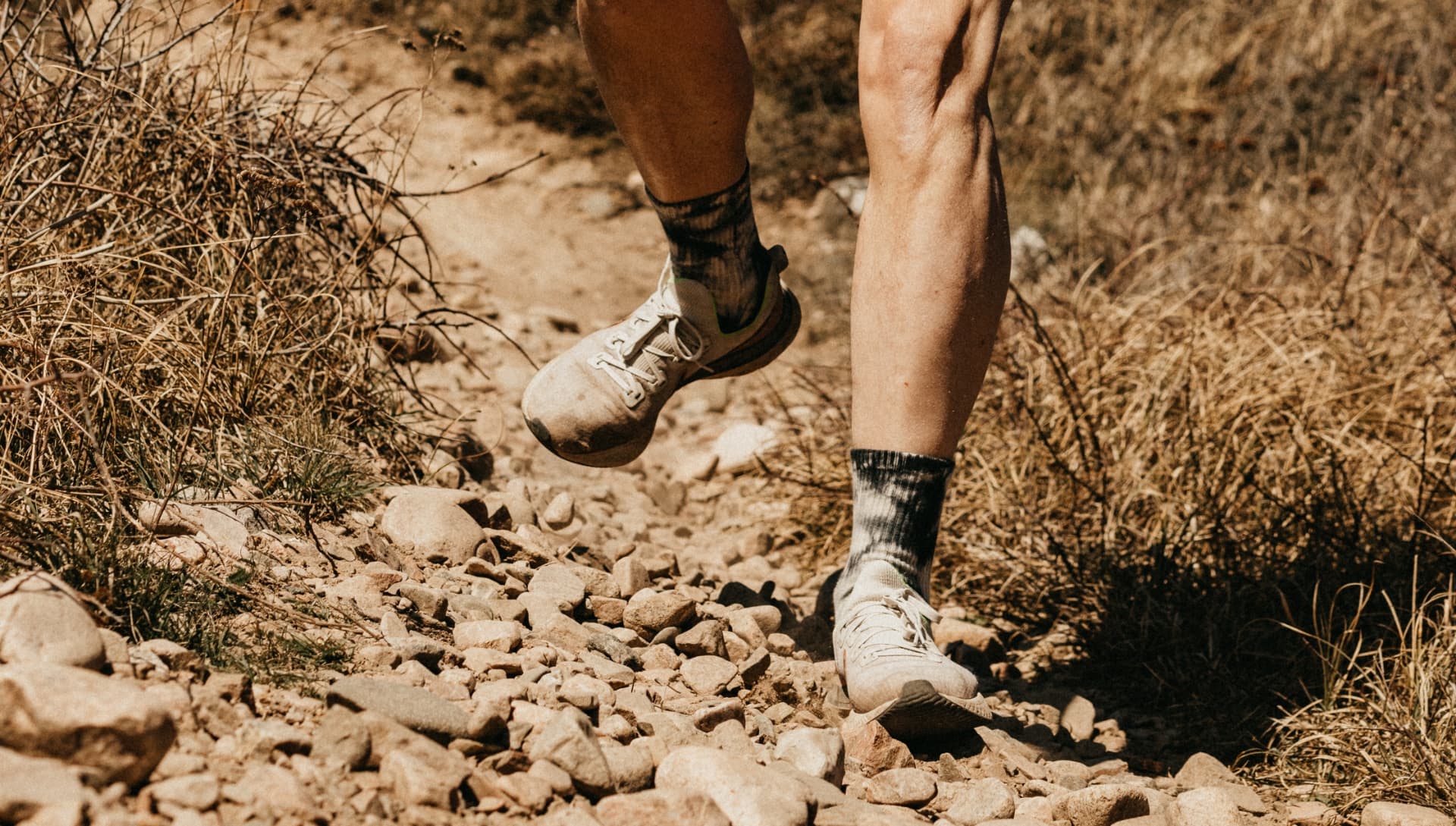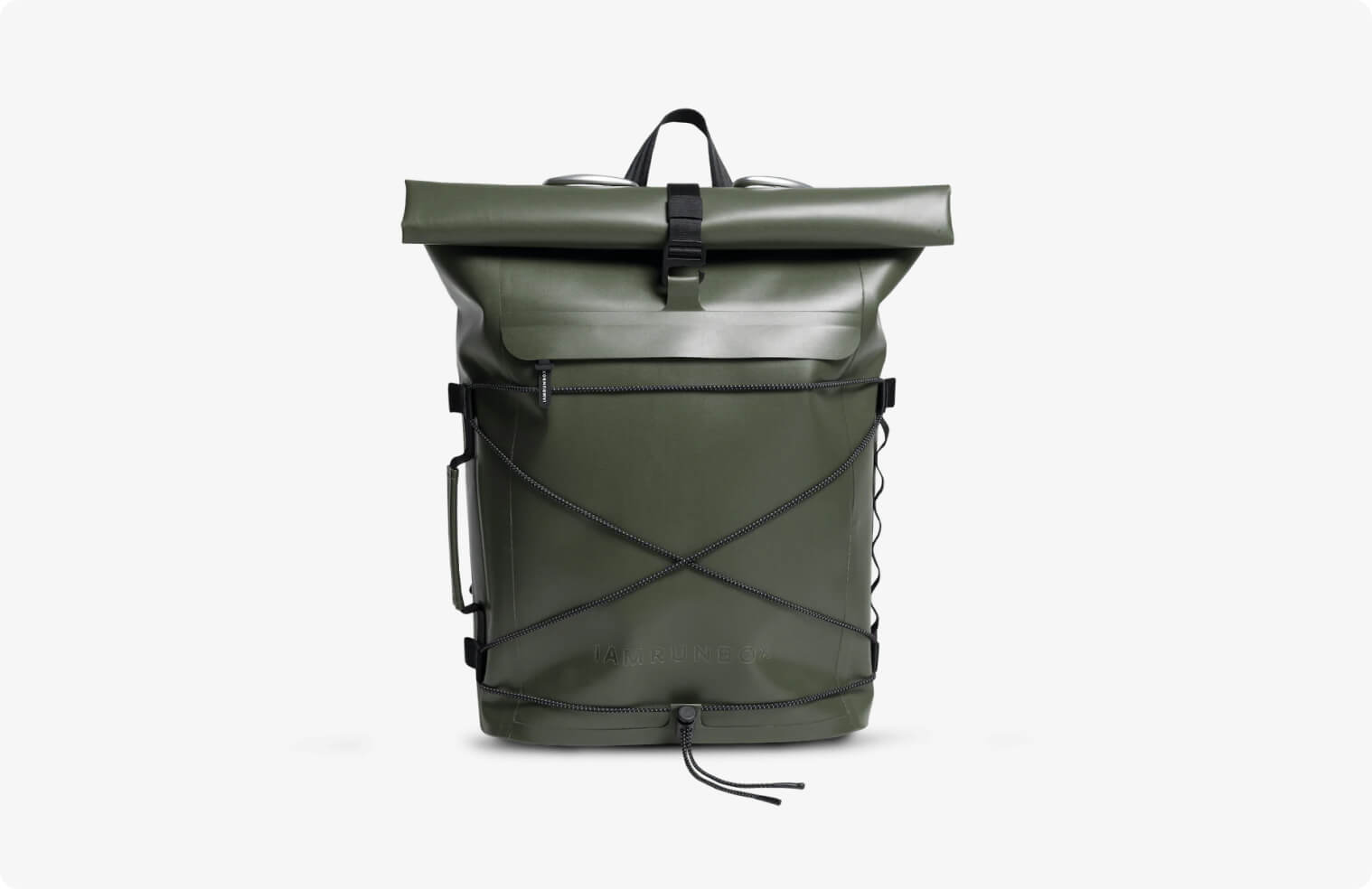
BEAT THE HEAT
A LITTLE SURVIVAL GUIDE TO SUMMER RUNNING
Unless you are born in the tropics, heat waves might catch you this time of year. Here’s our self-help handbook to avoid the runner bummer in the summer.
Ease up!
First of all, give your body several days to acclimatize to the warm weather. When you exercise, your internal body temperature rises. It also rises when the external temperature increases. In short: the load on the heart increases dramatically with exercising in hot weather, so take it slow, “listen to your heart” and feel good about it. The pace actually slows for most runners, once the temperature rises above 15°C (59° F), so stop stressing about performance. Women, however, are affected less by rising temperatures than men.

Set the scheme
When do you run? And where? Pick an hour when the temperature is lower - early morning or late evening. (But note that late evening runs might affect your sleep negatively. More on that here). Avoid concrete and asphalt as they retain heat. If you run in the city, find shade next to buildings and trees and follow the wind, literally. The breeze will ease.
#OOTD
Outfit of the day - very important! Focus on lighter colors in lightweight materials that allow air to flow freely. And don’t forget the sunscreen, the hat and perhaps some cool shades. Alright, we make backpacks - how can we get that sales argument in here? ;) The beauty of running in the summer is that you can stop by as many lakes, rivers and beaches as possible and just dive deep into the cooling blue. It is an amazing feeling of freedom to pack the backpack with swimwear, water, water, water, snacks, towel and perhaps even a change of clothes, and just go for it!

Danger danger!
Heat stress, cramps, hyperthermia, exhaustion, stroke. If you are reading this, it means you didn’t die from a heat related illness, like half a million people do each year (not counting emergency regions). It’s not a joke, folks! Although, you know your body well and “did this for 30 years” it’s still stupid to risk getting overheated. So, how can you reduce body heat?
Using doctor’s lingo, you can lower the human body temperature externally in four different ways:
Vaporization: translates into sweating! Love your sweat. Wear it with pride. It means that your brain is working. The hypothalamus is responsible for regulating body temperature and when you’re too hot, regulation occurs through sweating to cool you down. Actually, the body loses 85% of its heat during intense exercise this way.
Radiation: being so d**n hot that you’re releasing heat into the surrounding air, sort of like heat leaving a radiator. This usually occurs in air temperatures lower than 20°C (68°F), and your body drops 65% of its heat like this.
Convection: means losing heat through air or water molecules flowing across your skin. Fans were invented for a reason and who doesn’t love a cool pool when you’re feeling like a sauna?
Conduction: is when you’re cooling down through physical contact with another object or body. If you put a piece of ice onto your skin, what happens? You get cold because the ice transfers coldness to your body and the ice gets warm since your body transfers heat to the ice.
Using doctor’s lingo, you can lower the human body temperature externally in four different ways:
Vaporization: translates into sweating! Love your sweat. Wear it with pride. It means that your brain is working. The hypothalamus is responsible for regulating body temperature and when you’re too hot, regulation occurs through sweating to cool you down. Actually, the body loses 85% of its heat during intense exercise this way.
Radiation: being so d**n hot that you’re releasing heat into the surrounding air, sort of like heat leaving a radiator. This usually occurs in air temperatures lower than 20°C (68°F), and your body drops 65% of its heat like this.
Convection: means losing heat through air or water molecules flowing across your skin. Fans were invented for a reason and who doesn’t love a cool pool when you’re feeling like a sauna?
Conduction: is when you’re cooling down through physical contact with another object or body. If you put a piece of ice onto your skin, what happens? You get cold because the ice transfers coldness to your body and the ice gets warm since your body transfers heat to the ice.

Skål! (Cheers!)
But hey, is it possible to reduce body heat internally? Y’all heard about it: drink drink drink! We are not talking about cocktails and coffee here, since they have a dehydrating effect (among other “effects”). But the one and only H2O. Water!
Each hour during normal running circumstances you lose around 1 liter of water. On a hot summer day, depending on your unique metabolism, you can lose up to 10 liters!
Do a hydration plan. Start drinking 24 hours before you plan to run and keep it flowing consistently. “Translation for dummies”: drinking only coffee before a hot run is a bad idea. Even if you’re planning on drinking 10 liters after - it won’t help!
Each hour during normal running circumstances you lose around 1 liter of water. On a hot summer day, depending on your unique metabolism, you can lose up to 10 liters!
Do a hydration plan. Start drinking 24 hours before you plan to run and keep it flowing consistently. “Translation for dummies”: drinking only coffee before a hot run is a bad idea. Even if you’re planning on drinking 10 liters after - it won’t help!

Don’t you dare…
First of all, give your body several days to acclimatize to the warm weather. When you exercise, your internal body temperature rises. It also rises when the external temperature increases. In short: the load on the heart increases dramatically with exercising in hot weather, so take it slow, “listen to your heart” and feel good about it. The pace actually slows for most runners, once the temperature rises above 15°C (59° F), so stop stressing about performance. Women, however, are affected less by rising temperatures than men.
Allergic?
Many Swedes suffer from pollen allergy. Or bee stings. Those annoying things about sprouting spring and summer. Antihistamines are necessary, but can have a dehydrating effect. Don’t use them right before a run. The same goes with antidepressants. But hopefully, running is the only antidepressant you ever need to use.
Take it easy!
